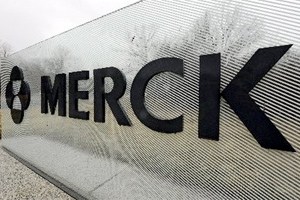
Merck & Co has made no secret of the fact that anti-PD1 immunotherapy MK-3475 is its top pipeline prospect, and reinforced that yesterday with three separate deals to test the drug in combination with other cancer drugs.
MK-3475 has already shown promise on its own as a treatment for melanoma and lung cancer, and Merck now wants to test it as a monotherapy and in combination with other drugs “across a wide range of cancers”, according to the company’s R&D chief Roger Perlmutter.
Merck filed a rolling approval for the PD-1 inhibitor earlier this year as a second-line treatment for melanoma patients who have progressed despite being given Bristol-Myers Squibb (BMS) therapy Yervoy (ipilimumab), and the drug has been predicted to achieve multibillion dollar sales at peak if it gets approved across several cancer indications.
The latest agreement with Amgen covers the use of MK-3475 alongside oncolytic immunotherapy talimogene laherparepvec in a phase Ib/II study in patients with previously untreated advanced melanoma. Amgen’s drug – which harnesses the cell-killing activity of a virus – has already shown promise in phase III testing in melanoma.
Meanwhile, MK-3475 will also be tested in phase I/II trial in combination with Pfizer’s tyrosine kinase inhibitor Inlyta (axitinib) in patients with advanced renal cell carcinoma, while a phase I trial will be started to examine a combination of Merck’s drug and the monoclonal antibody (mAb) PF-05082566, which targets CD-137 – a protein involved in regulation of immune cell proliferation and survival.
In a separate agreement the two companies will also carry out preclinical testing of MK-3475 with palbociclib, Pfizer’s cyclin dependent kinase (CDK) inhibitor, which is in trials for breast cancer and melanoma. Palbociclib has also been tipped as a future blockbuster.
Finally, Merck’s agreement with Incyte covers the use of MK-3475 alongside INCB24360, an indoleamine 2, 3-dioxygenase inhibitor, in patients with non-small cell lung cancer (NSCLC).
News of the agreement helped distract attention from Merck’s fourth-quarter results statement, which revealed sales down 4 per cent to $11.3bn, hit by a big drop-off in sales of asthma drug Singulair (montelukast) on generic competition, as well as a 14 per cent drop in net income to $781m.
Sales of Merck’s biggest product, Januvia (sitagliptin) for diabetes, fell 1 per cent to $1.12bn in the fourth quarter, although sales of line extension Janumet (sitagliptin and metformin) climbed 11 per cent to $503m.
For the full year, pharmaceutical sales were down 8 per cent to $37.4bn, slightly below analysts’ consensus expectations.




